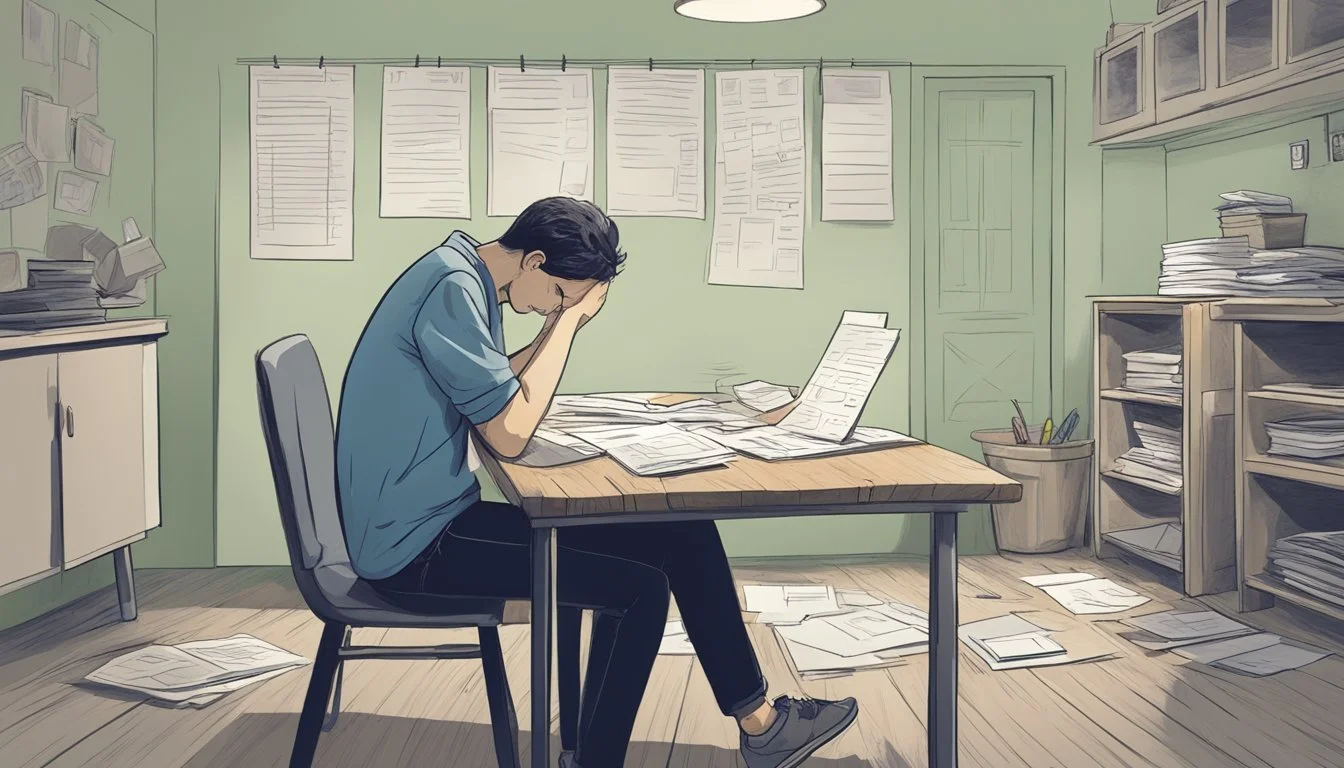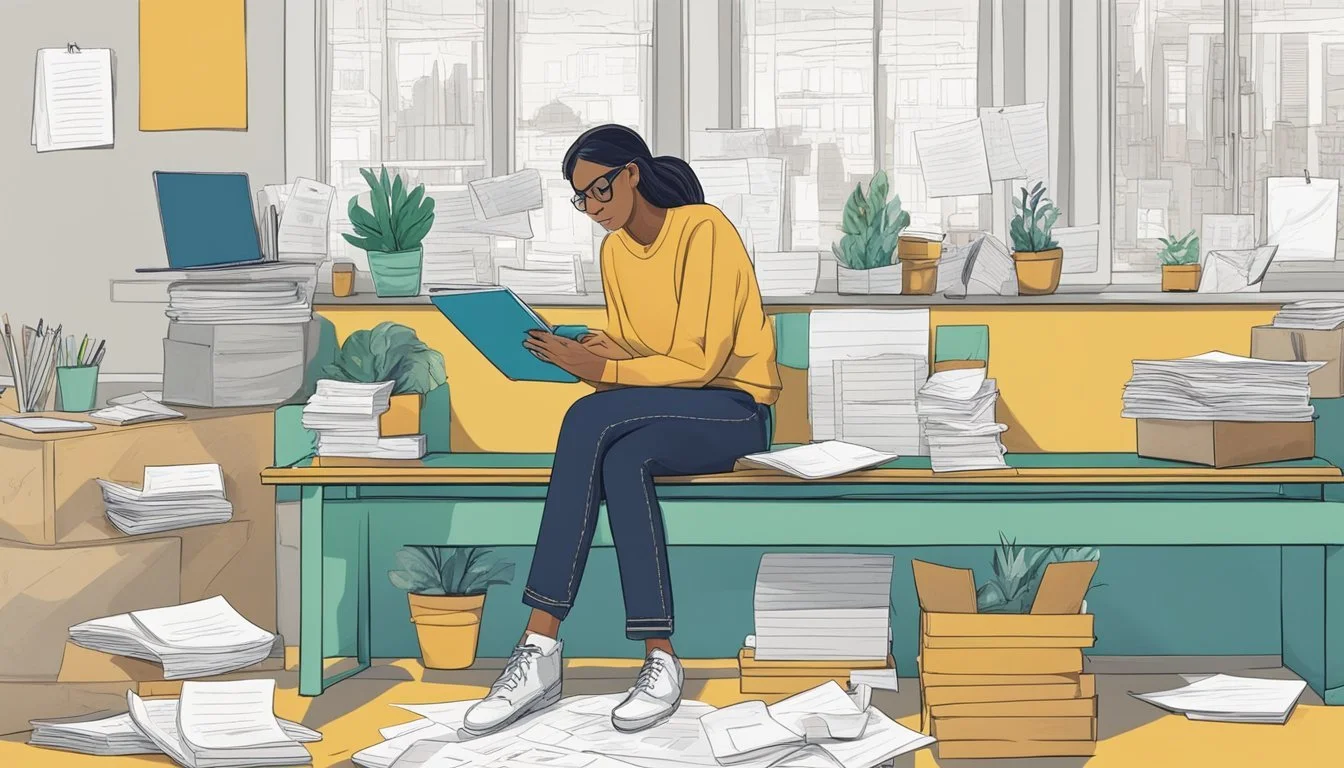11 Signs You May Be Neglecting Your Own Needs in a Relationship
How to Reclaim Your Well-being
In relationships, it's easy to prioritize your partner's needs while neglecting your own. This often unintentional behavior can lead to feelings of dissatisfaction and resentment.
Recognizing and addressing your own needs is crucial for a balanced and fulfilling relationship. Understanding the signs of self-neglect can help you take the necessary steps to ensure both partners feel valued and supported.
1) Ignoring Your Emotional Needs
People often overlook their own feelings while focusing on their partner's well-being. This can lead to a lack of emotional fulfillment. For instance, always prioritizing your partner's emotions over your own can create an imbalance.
Setting aside your feelings can create a distance within the relationship. If emotional needs go unmet, feelings of dissatisfaction may arise.
Communication plays a crucial role. Expressing one's emotions is important. Without this, it can foster a sense of isolation.
It's important to recognize moments when you need emotional support. Asking and receiving emotional backing from a partner is vital for a healthy relationship.
Neglecting emotional needs could also lead to stress or burnout. This might further strain the relationship. It's essential to seek a balance where both partners' emotional needs are acknowledged and met.
2) Sacrificing Personal Interests
Many individuals give up their hobbies and passions to please their partners. When someone stops pursuing activities they once enjoyed, it can lead to feelings of emptiness.
Engaging in personal interests is crucial for individual well-being. Neglecting these interests may result in a loss of identity over time. A person should not feel obligated to abandon aspects of themselves to maintain a relationship.
People often make compromises in relationships, but consistently sacrificing personal interests can be a red flag. For instance, skipping regular gym sessions or quitting a beloved book club could signal an imbalance.
Relationships should allow space for personal growth. When personal interests are set aside, the relationship may become more of a constraint than a support system.
Signs of sacrificing personal interests may include feeling unfulfilled despite being busy with relationship commitments. This can indicate a deeper issue of neglecting one’s own needs. For more insights, check out these warning signs of ignoring your own needs.
Prioritizing oneself isn't selfish; it's essential. Individuals should aim to integrate their passions alongside their relationship duties. This balance fosters a healthier, more fulfilling partnership.
3) Lack of Self-Care
Neglecting self-care can have significant consequences on well-being. When individuals forgo activities that recharge them, it often leads to burnout.
One immediate impact is low energy levels. Routine self-care practices, such as exercising, resting, or engaging in hobbies, are essential for maintaining energy and reducing fatigue.
Ignoring self-care also affects emotional health. People may experience irritability or lack patience, making them more prone to conflicts and misunderstandings in relationships.
Physical symptoms like headaches, stomach aches, and frequent colds can also arise due to high stress and inadequate self-care. This happens because the body’s immune system weakens without proper attention to health.
A sense of fulfillment is often tied to self-care. When constantly prioritizing others, individuals may feel unfulfilled despite staying busy. This can lead to a lingering sense of emptiness.
Setting aside dedicated time for oneself is crucial. Even scheduling an hour daily for activities like reading, meditating, or simply relaxing can make a significant difference. Establishing and sticking to self-care routines helps ensure emotional and physical health.
Recognizing and addressing these signs promptly can prevent escalation of problems and contribute to a better quality of life.
4) Feeling Overwhelmed Constantly
Feeling overwhelmed can be a significant indicator that your needs are being neglected in a relationship. When someone spends their time prioritizing their partner's needs over their own, they may often feel swamped with responsibilities.
This sense of being overwhelmed can manifest in various ways, such as experiencing constant fatigue or anxiety about meeting expectations. If an individual frequently finds themselves unable to relax or recharge, it’s a clear sign that their own needs are not being sufficiently addressed.
Another aspect to consider is the emotional toll. Feeling responsible for their partner’s happiness or well-being can drain their energy and emotional resources. This can create a cycle where they feel perpetually tired and stressed, leading to burnout.
In relationships where emotional neglect is an issue, people may feel excessively responsible for their partner's feelings. This can be especially intense if they had similar experiences in childhood, making them more prone to being overwhelmed.
These signs highlight the importance of setting boundaries and ensuring that one's own needs are not overlooked. By doing so, both partners can enjoy a healthier, more balanced relationship.
5) Suppressing Feelings to Avoid Conflict
Many people suppress their feelings to keep peace in their relationships. They fear that expressing their true emotions might lead to arguments or tension.
This behavior often stems from a desire to be seen as easygoing or agreeable. They believe that by avoiding conflict, they can maintain harmony with their partner.
Over time, this can lead to accumulated resentment. Emotions that are consistently suppressed build up, eventually erupting or causing emotional detachment.
Another consequence is that their own needs go unmet. Bottling up feelings can cause one to feel ignored and undervalued, which negatively impacts mental health.
Communicating honestly is crucial. Open and respectful dialogue about feelings can strengthen the relationship, fostering mutual understanding and respect.
Recognizing the importance of emotional expression can prevent the damaging effects of suppressed feelings. This awareness helps create a more balanced and fulfilling relationship.
6) Difficulty Asserting Boundaries
Struggling to assert boundaries often signals difficulty in relationships. When someone can't set clear limits, they might overcommit or feel pulled in multiple directions. This often leads to feeling overwhelmed and undervalued.
A lack of boundary assertion can stem from a desire to please others. As noted, ignoring one's own needs to make others happy can result in feeling unfulfilled.
Being unable to say no is another sign. This trait can lead to taking on more than one can handle, leaving little time for personal needs. Without boundaries, prioritizing becomes difficult, and one's own well-being might be neglected. Difficulty in setting priorities is a common outcome.
Establishing boundaries involves valuing oneself and one's rights. It means acknowledging that it’s okay to refuse requests that don’t align with one’s own needs or values. Learning to protect personal space and time is essential for emotional health. For guidance on how to reinforce boundaries, you can refer to useful strategies.
Respecting and enforcing personal boundaries ensures that one’s needs are met. This practice helps create healthier, more balanced relationships.
7) Not Prioritizing Personal Goals
When individuals place others' needs above their own, their personal goals can often fall by the wayside.
Skipping personal time once or twice can be insignificant, but consistently neglecting personal pursuits signals deeper issues.
Many times, they might feel guilty for focusing on their own ambitions, fearing it might upset their partner or strain the relationship.
If personal development is repeatedly set aside, it's clear that they are not prioritizing their own growth.
This can lead to feelings of stagnation and decreased self-worth as unachieved goals accumulate, leaving little room for personal satisfaction or achievement.
In some cases, this behavior stems from a deep-seated desire to maintain harmony and avoid conflict at any cost.
It becomes crucial to address and balance personal aspirations with relationship dynamics to foster a healthier, more fulfilling partnership.
8) Constantly Seeking Validation
Constantly seeking validation can be a sign of neglecting your own needs in a relationship. This behavior often stems from low self-esteem or a lack of confidence.
When individuals frequently look for approval from their partner, it places undue pressure on the relationship.
This need for constant reassurance can cause stress and tension. It may also lead to resentment if one partner feels they are always responsible for the other's self-worth.
People in this situation might display behaviors such as fishing for compliments or expressing insecurity about their choices. They might rely heavily on their partner’s opinions to feel good about themselves.
This pattern can inhibit personal growth. Without self-assurance, individuals may find it difficult to take risks or make important decisions independently.
Validation-seeking can also manifest through excessive worrying about their partner’s perception. This can cause over-dependence and hinder the development of a healthy, balanced relationship.
For those who recognize this behavior in themselves, developing internal confidence and self-validation is crucial. By doing so, they can build a more stable and fulfilling relationship.
Experts suggest that practicing self-compassion and setting personal boundaries can help in reducing the need for external validation.
9) Feeling Resentful or Unappreciated
Feeling unappreciated can often lead to resentment. When efforts to please others consistently go unnoticed, it can create a sense of imbalance in the relationship.
Many people expect some level of gratitude when they go out of their way for their partner. When this is absent, it's natural to feel overlooked.
Instances where one feels like their achievements or difficult days are not acknowledged can contribute to a growing sense of disconnection. Unappreciated efforts can leave a person feeling undervalued in the relationship.
Each individual needs to feel valued for their contributions. If this validation is missing, emotional neglect becomes more apparent. Resentment can build over time if the focus is always on one partner and not the other, as noted in signs of emotional neglect.
10) Neglecting Health and Well-being
Neglecting your health can take many forms, from avoiding regular check-ups to not prioritizing self-care. This neglect can result in chronic fatigue, increased stress, and a higher risk of illness. It's important to maintain a balanced lifestyle that includes exercise, proper nutrition, and adequate rest.
Emotional well-being is equally crucial. Ignoring emotional health can lead to issues like frequent mood swings. Feeling constantly tired may signal you're not just lacking physical rest, but emotional rest as well.
Personal hygiene often suffers when one is overwhelmed or stressed. Skipping basic self-care routines, such as brushing teeth or showering, can be a red flag. This neglect indicates a deeper issue that needs attention.
Lastly, being busy doesn’t mean being healthy. Continuous busyness without a sense of fulfillment might indicate that you're neglecting your own needs in favor of others. Balancing responsibilities while taking time for your health is essential for overall well-being.
11) Always Putting Partner First
Neglecting one's own needs in favor of a partner's can create an unhealthy imbalance in the relationship. When someone's life revolves entirely around fulfilling their partner's desires, it signals a significant issue. This behavior often leads to feelings of being unappreciated and overlooked.
If a partner is always the focal point of the relationship, it may indicate emotional neglect. Sacrificing personal needs and desires to prioritize a partner can lead to resentment and burnout. It's crucial to maintain personal interests and self-care to ensure a balanced and fulfilling relationship.
This persistent self-neglect can result in one feeling insignificant in their own relationship. Often, individuals who habitually put their partner first feel unimportant and undervalued. This habit can be particularly harmful when the partner doesn't reciprocate the same level of attention and care.
Those who constantly cater to their partner's needs at the expense of their own risk losing their sense of self. It's important to strike a balance where both partners' needs are acknowledged and met. Healthy relationships thrive on mutual respect and support, not one-sided sacrifices.
Persistent patterns of always putting a partner first can lead to emotional exhaustion. Maintaining healthy boundaries and self-respect is vital for personal well-being and the longevity of the relationship. For more insights, consider exploring 10 signs you’re always putting your partner first.
Understanding Self-Neglect in Relationships
Self-neglect in relationships can manifest in various ways, often subtle and easy to overlook. It is crucial to understand the necessity of self-care in a partnership and recognize early warning signs to maintain a balanced and healthy relationship.
The Importance of Self-Care in Partnership
Self-care in a relationship ensures that an individual's needs are met, fostering a healthy and fulfilling partnership. Without regular self-care, one might experience burnout, resentment, and emotional exhaustion. It is essential to set boundaries, communicate needs effectively, and allocate time for personal interests.
Regular self-care activities might include exercising, engaging in hobbies, or spending time with friends. These activities help maintain an individual's well-being and contribute positively to the relationship's dynamic. When both partners prioritize self-care, they bring more energy and positivity to the partnership, enhancing mutual support and understanding.
Recognizing Early Signs of Neglect
Early signs of self-neglect in a relationship can be subtle. One key indicator is consistently prioritizing a partner's needs over one's own, leading to a sense of losing one's identity. Feelings of fatigue, irritability, or frustration can be another sign.
When achievements go unnoticed or personal struggles are ignored, it may hint at neglect. A person might feel like they are in the background, unackreciated. Observing these signs helps in taking timely actions, such as open communication and seeking professional advice if needed. Addressing neglect early on can prevent deep-seated issues and help maintain a thriving relationship.
Impact of Neglect on Mental Healt
Neglect in relationships can lead to significant emotional and psychological issues. These effects are often intertwined and can have lasting consequences on overall mental health.
Emotional Consequences
Neglect can severely impact emotional well-being. People experiencing neglect may feel guilt, fear, anger, and shame. These emotions stem from feeling undervalued and unimportant. Persistent feelings of isolation and distrust in others can also develop, eroding the foundation of self-esteem.
Other signs include self-worth issues. When needs are constantly unmet, self-confidence can decline. Self-control issues often emerge, potentially leading to risky behavior. Addressing these emotional consequences early is crucial to minimize long-term damage.
Long-Term Psychological Effects
The long-term psychological effects of neglect can be profound. Individuals might develop conditions such as depression and anxiety. Childhood emotional neglect can make it harder to form and maintain healthy relationships in adulthood, affecting interpersonal trust and attachment bonds.
Continued neglect can lead to trauma. Such trauma can manifest in self-sabotaging behaviors and difficulty in identifying or expressing emotions. Therapy can be a beneficial step in addressing these issues by helping individuals learn to recognize and respond to their mental health needs effectively.
Further, neglect can associate with substance use disorders and other harmful coping mechanisms. Recognizing and treating the long-term effects of neglect is critical for mental health recovery and overall well-being.
Strategies for Reclaiming Your Needs
Reclaiming your needs in a relationship requires using effective communication techniques and establishing clear boundaries. These strategies help ensure your well-being while maintaining a healthy dynamic with your partner.
Effective Communication Techniques
Open and honest communication is crucial. He or she should express their feelings and needs clearly and calmly. This might involve using "I" statements, such as, "I feel overwhelmed when..." to avoid sounding accusatory. Active listening is also key; giving full attention to the partner without interrupting helps in understanding their perspective.
Non-verbal communication, like maintaining eye contact and using an open posture, can significantly impact the effectiveness of the conversation. It shows genuine interest and engagement. Regular check-ins can also be beneficial. Setting aside time for meaningful conversations about each other’s needs strengthens the relationship.
Establishing Boundaries
Setting boundaries protects one's emotional and physical space. Boundaries are vital for maintaining individual identity within a relationship. It's important to communicate what behaviors are acceptable and which are not. For instance, he or she might say, "I need time alone after work to decompress."
Respecting these boundaries is equally important; both partners must honor each other's limits. It's helpful to revisit and adjust boundaries as the relationship evolves. Writing down these agreements can also provide clarity and prevent misunderstandings.
Creating time for personal interests and hobbies is another important aspect. It ensures that one’s needs and passions are not ignored. Encouraging each other to pursue these activities independently can foster a sense of fulfillment and reduce feelings of neglect.









